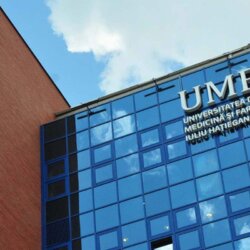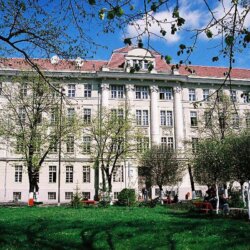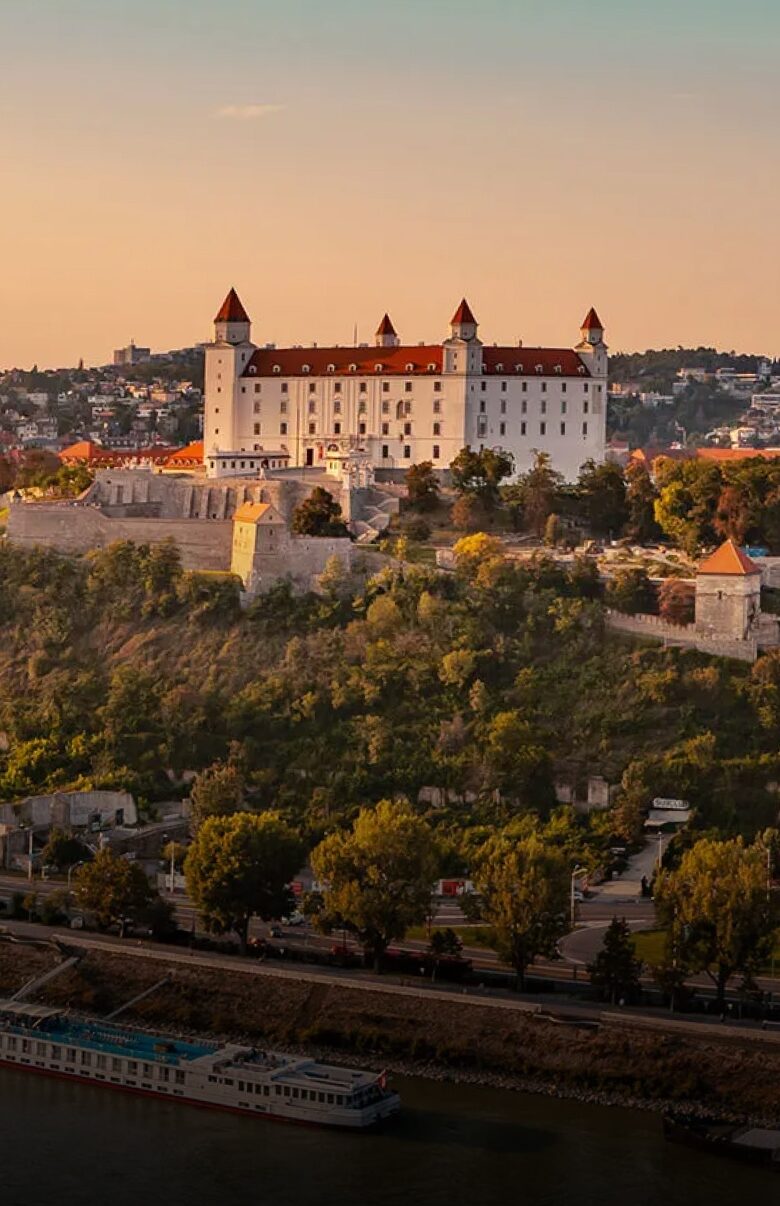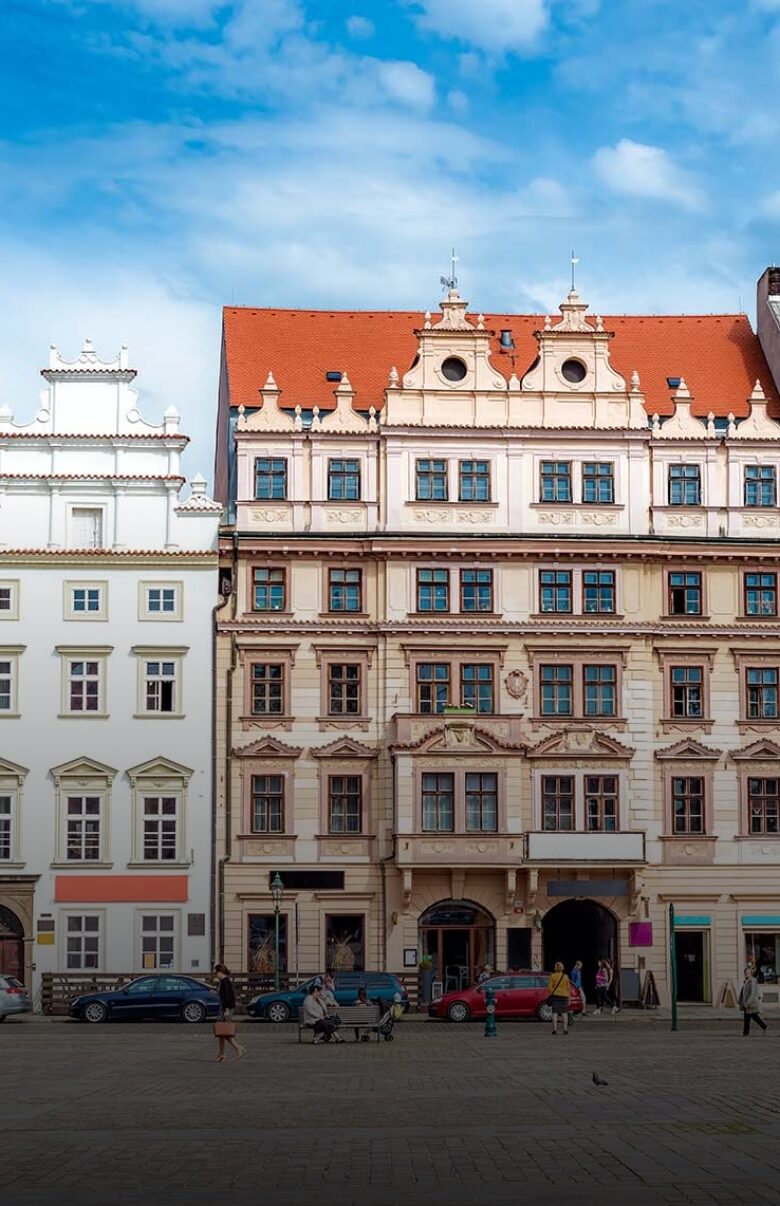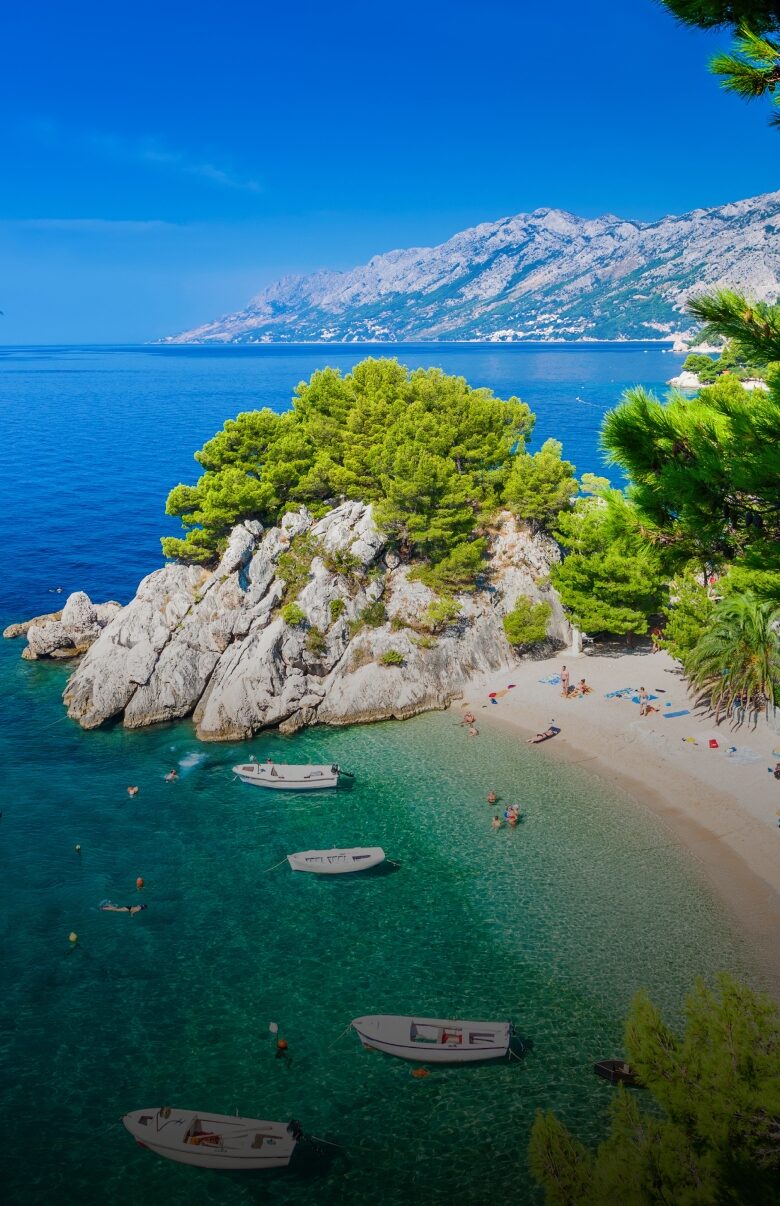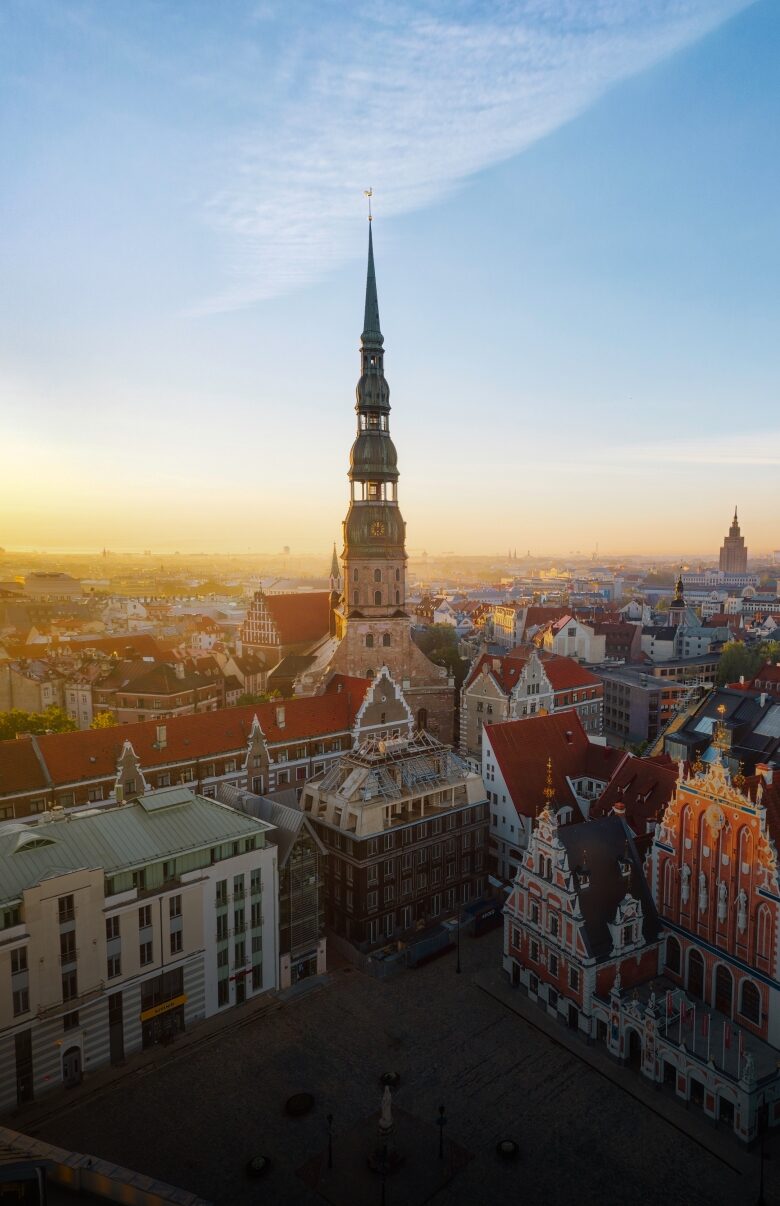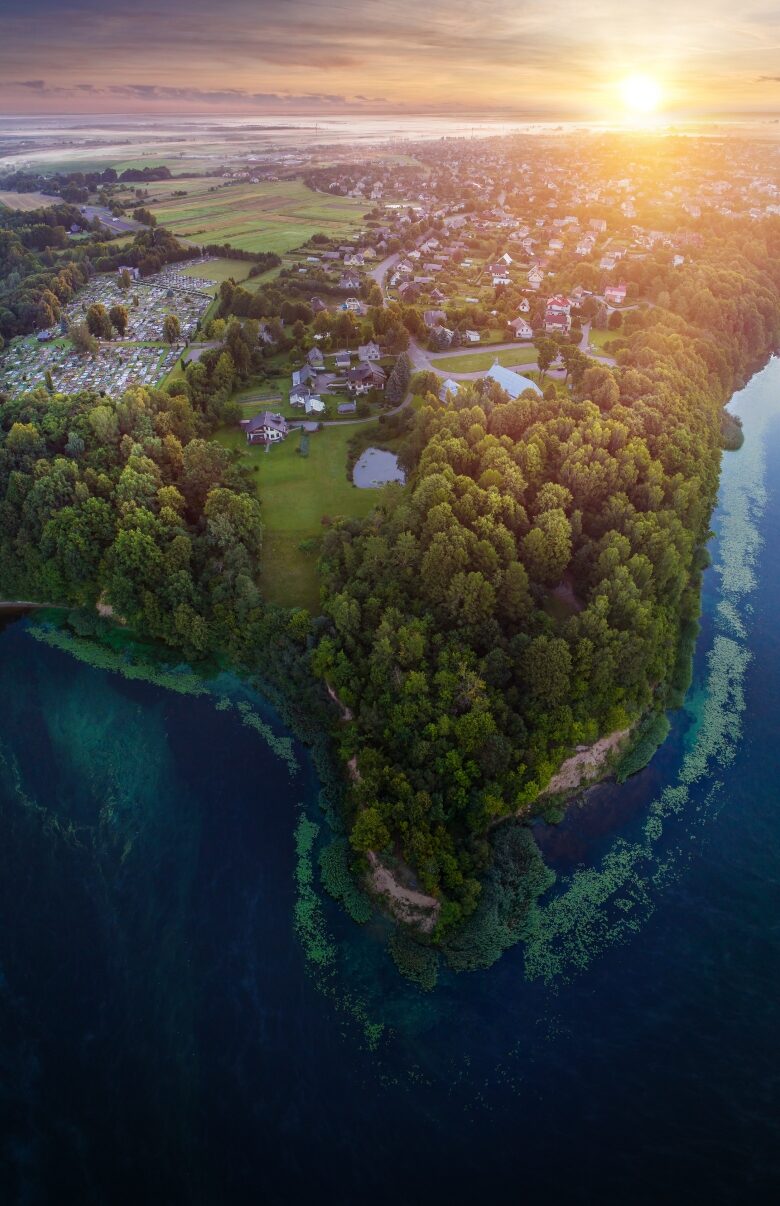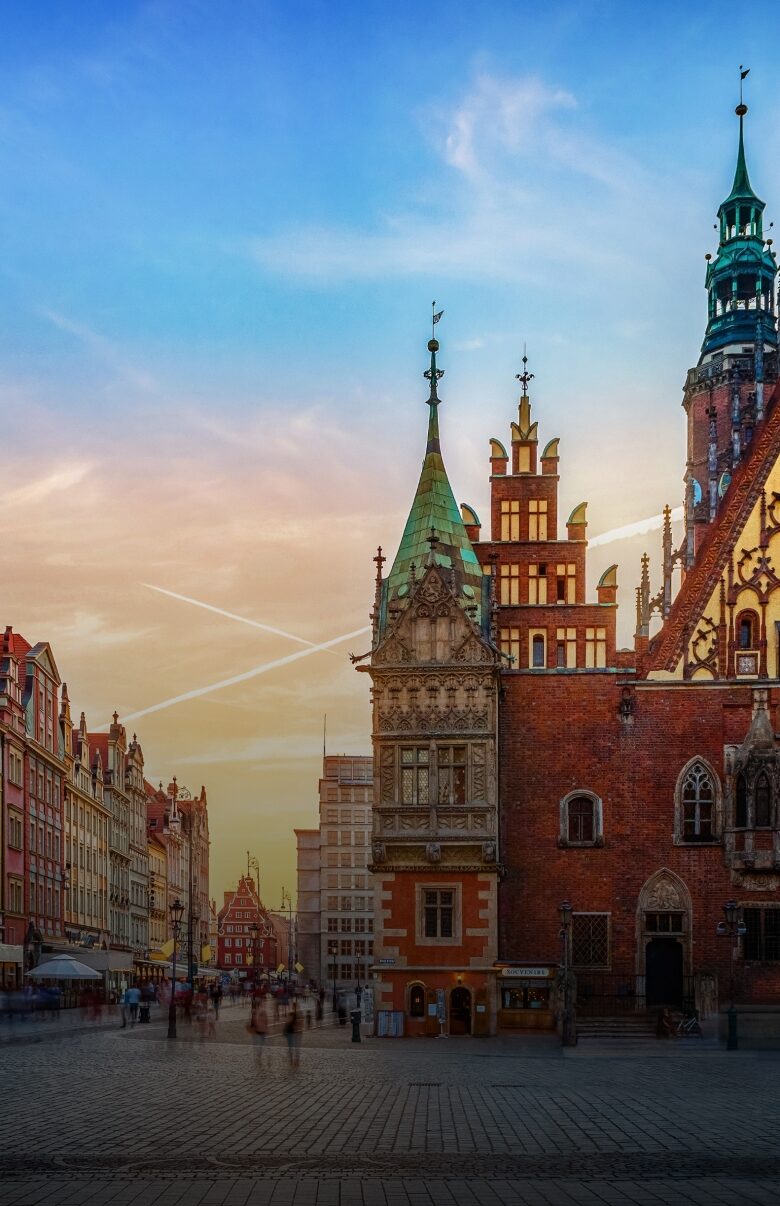Universities
Medical studies in Romania
Studying medicine in Romania is an NC-free alternative to studying in Germany. The numerous universities in Romania attract students from all over the world with manageable tuition fees and lectures in English or French.
Are you interested in studying medicine in Romania?
We would be happy to advise you free of charge about your options for studying medicine in Romania.
Have you ever thought about studying abroad? How about a country that is not only known for its medical education, but also for its impressive culture? Romania, a European jewel, could be just the right place for your medical studies. With futuredoctor, you have a trustworthy partner at your side to support you on this exciting journey.
Studying medicine in Romania - Many advantages
The historic architecture of Romania's major cities and the colourful nightlife attract countless travellers to the country every year. So why not study where others go on holiday? You can find all the information and other arguments in favour of studying medicine in Romania here!
Degree recognised throughout Europe
According to the EU Professional Recognition Directive, completed medical studies in Romania are recognised throughout Europe and students can easily apply for a licence to practise medicine in Germany.
NC-free study abroad
1.0s Numerus Clausus for medical studies? Unlike in Germany, the 1.0 numerus clausus is not required for a place on a degree programme in Romania. To apply for degree programmes at most Romanian universities, you only need your university degree and an English language certificate. High school graduates with good grades in science subjects such as chemistry or biology can score particularly well here.
Favourable tuition fees and living costs
Compared to other European countries, Romanian universities abroad charge low tuition fees. While other European universities charge over 6,000 euros per semester, the amount charged by some universities in Romania covers the fees for an entire year.
If you decide to study medicine in Romania, you will save quite a bit on living costs, as countries like Romania have the cheapest living costs in the entire European Union. This even allows students to live in their own flat instead of a shared flat and make the most of their financial resources.
Lectures: Communication in English or French
As there are so many people from all over the world interested in studying medicine at Romanian universities, the entire programme structure with all lectures for students is in English. In some cases, however, the universities also offer lectures in French, such as the university in Iaşi.
Possible to return to Germany during your studies
If you are drawn back to Germany from Romania as quickly as possible, you have the opportunity to transfer from abroad back to Germany during your studies. As the structure of the medical degree programme is very similar to the German medical degree programme, you can try to transfer to universities in Germany by providing information such as a certificate of equivalence and proof of performance.
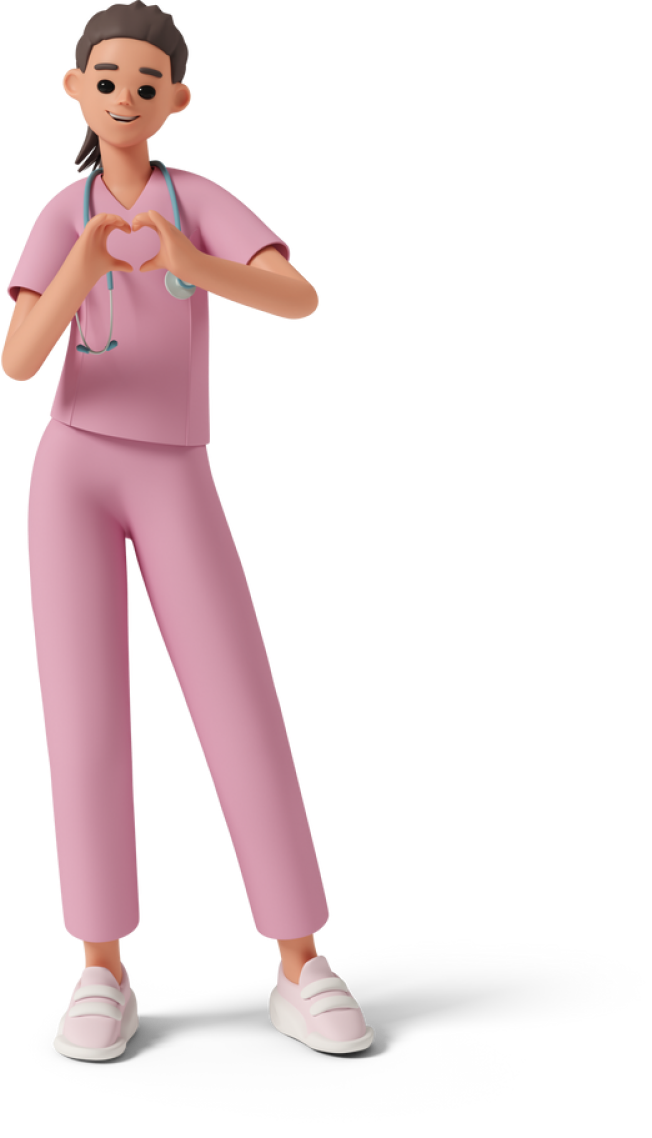
Study medicine abroad with futuredoctor
Do you dream of studying medicine, but the chances of getting a place in your home country are slim? We can help you find a suitable study place abroad.
Advantages at a glance:
- EU-wide recognised qualifications
- Study in English or German
- > 95% Success rate
- > 1,000 study places allocated
From the selection of universities and support in the application process to orientation and finding accommodation - we are at your side.
Studying medicine in Romania: At which universities can you study medicine?
Romania has six established universities where you can study your dream medical programme (human medicine and dentistry) in English - ideal for international applicants:
1st Victor Babes University of Timisoara
Study programmes: Human medicine, dentistry (6 years each), Pharmazie ohne NC
Special features: High research orientation, international teaching in English and French, modern clinical training
2. Iuliu Hatieganu University of Cluj-Napoca
Study programmes: Medicine and pharmacy also in English and French
Reputation: Leading medical faculty in Transylvania with a strong focus on research, high quality
3. "George Emil Palade" University of Târgu Mureș
Study programmes: Human Medicine, Dentistry (each offered in English)
Special feature: German campus in Hamburg (UMCH); pre-clinical part possible in Germany
4. Grigore T. Popa University of Iaşi
Study programmes: Human medicine and dentistry in English (partly also in French)
Advantage: Large international degree programme, high degree of recognition for transfer to Germany, no aptitude test for applicants
5th University of Oradea
Study programmes: Medicine in English
Frame: Six-year curriculum, equipment in cooperation with US institutions
6th Carol Davila University of Bucharest
Study programmes: Human medicine, dentistry, pharmacy in English
Reputation: Oldest and most renowned medical school in Romania, globally recognised
University | Location | Study programmes in English | Special features |
|---|---|---|---|
Timisoara | Human medicine, dentistry, pharmacy | Practice-orientated training, modern teaching | |
Cluj-Napoca | Human medicine, pharmacy | Strong research, renowned faculty | |
George Emil Palade Uni. Târgu Mureș | Targu Mures / Hamburg | Human medicine, dentistry | German campus study possible |
Grigore T. Popa Uni. Iaşi | Iaşi | Human medicine, dentistry | High recognition, large international group |
University of Oradea | Oradea | Medicine (6 years) | Curriculum according to US standards, versatile facilities |
Carol Davila Uni. Bucharest | Bucharest | Human medicine, dentistry, pharmacy | Oldest and leading medical school |
Studying medicine in Romania - Requirements
In order to be admitted to study medicine in Romania, there are various requirements and procedures in the application process that prospective medical students must observe.
General requirements
General university entrance qualification (e.g. Abitur or equivalent qualification) is required
Good grades in biology and chemistry are considered to be supportive for a successful application
Language certificate in English (e.g. TOEFL or IELTS), sometimes an English test from the university can be submitted later
Specific admission requirements at universities
Iuliu Hațieganu University of Cluj-Napoca
Abitur average: Recommendation approx. 2.3 or better when applying for English or French-language study places
Admission procedure: No written test for international degree programmes, selection based on academic profile and supporting documents
Victor Babeș University of Timisoara
Language certificate: English or French required
Admission test: MCQ aptitude test in biology and chemistry for non-EU students, selection procedure for the submission of application documents
University of Targu Mures (George Emil Palade University)
Teaching: Human medicine and dentistry in English, partly pre-clinical phase in Hamburg
Admission: NC-independent, admission is based on academic performance and interview / document evaluation
Universities of Iași, Arad and Oradea
Iași (Grigore T. Popa) and Arad: Good science grades, letters of recommendation, internships and education can support the application. For Arad, an MCQ test in biology is mandatory, as well as at least B1 level in English or French
Oradea (University of Oradea): Proof of English language skills (e.g. TOEFL/IELTS or university test) and personal interview on Biology or Organic Chemistry required
We'll prepare you with all the information you need! Wait, you "only" have a vocational baccalaureate? No problem! There are some countries that offer you a Medizinstudium mit Fachabitur enable.
Medical studies in Romania - Structure
Duration and structure
Studying medicine in Romania usually takes six years, similar to German universities.
It is divided into:
Pre-clinical training (first 2 years): Focus on theoretical basics such as anatomy, biochemistry, physiology and terminology
Clinic (from the 3rd year): Modules on internal medicine, surgery, paediatrics, gynaecology, psychiatry and much more, combined with practical hospital placements
Preclinical phase (years 1-2)
Teaching the basics of natural sciences: anatomy, biophysics, cell biology, medical chemistry, physiology
Supplementary teaching: medical Romanian, sport, social and health psychology (depending on the university)
Clinical phase (years 3-5)
Participation in specialised modules on CardiologyNeurology, Gynäkologieemergency medicine, public health, forensics and other disciplines
Regular clinical practice in teaching hospitals: independent anamnesis, patient care, participation in diagnostics and therapeutic routine
Practical year / Internship (year 6)
Final year with full-time clinical rotation (e.g. Internal Medicine, Chirurgieelective subject)
The internship is comparable to the German practical year (PJ): compulsory rotations plus elective rotations for specialisation
Contact us with people and patients in the foreground
Course ends with official licence examination and final thesis
Mobility & recognition
The degree programme is structured according to the Bologna Process, with recognised ECTS credits (360 ECTS)
A transfer to Germany is generally possible - provided that the previous academic achievements are recognised and the examination regulations are suitable
Erasmus exchange programmes also offer the opportunity for a Semester abroad within the EU
Studying medicine in Romania - costs & financing
Tuition fees (per year)
According to current data, tuition fees range from around €4,800 to €8,000 per year depending on the university, which is below the European average.
Victor Babeș University (Timișoara): around € 4,800 p.a. for medicine in English
Grigore T. Popa University (Iași): approx. € 5,000 p.a.
Iuliu Hațieganu University (Cluj-Napoca): approx. 7,500 - 8,000 € p.a. for the English programme area
Arad / Târgu Mureș: around € 6,000 - 8,000 p.a. depending on location and degree programme
Cost of living (monthly)
The cost of living in Romania is significantly lower than in Germany.
Average for students: around €400 - €600 per month, including rent, food, transport and leisure time
In smaller cities such as Iași or Oradea, you can sometimes get by on around €300 a month for basic costs.
Financing options
Scholarships: National and international funding programmes support tuition fees and/or living costs.
Student loans: Repayment usually takes place after graduation - particularly suitable for covering tuition fees
Own funds / part-time job: Support from the family or a part-time job despite the time spent studying.
4 interesting facts about Romania
The heaviest building in the world is located in Romania - in Bucharest to be precise. It is the Palace of the Parliament of Bucharest, for which 700,000 tonnes of steel and bronze were used for construction.
Romania is the first city to have electric street lighting In 1884, the gas lanterns in Timişoara were replaced by electric lights.
A perfectly round village: Charlottenburg, located about 40 kilometres from Timisoara, was formed by German settlers in the 18th century and is the only one of its kind in Romania.
The national dish in Romania is Mămăligă, a solid maize porridge with meat and cheese from sheep. It is often served with roulades and is very popular at home and abroad.
Studying medicine in Romania - Application
To apply to study medicine in Romania, you must submit various application documents, such as a notarised copy or a language certificate in English or French. Some universities also require a letter of recommendation or participation in an entrance test for prospective students. It is important that you recognise the different Bewerbungsfristen der Universitäten and make sure you submit your application in good time.
Alternative to studying medicine in Germany? We can help you!
Are you interested in a Medizinstudium im Ausland? We are there to advise and support you in all phases! Together we will pave the way to your dream job!
Starting signal
What are you waiting for? 🎉
Order your information pack now, find out more about studying medicine abroad and get started as a medical student!
Frequently asked questions
FAQs about studying medicine in Romania
How long does it take to study medicine in Romania?
The medical degree programme in Romania lasts 6 years for human medicine and 6 years for dentistry and is divided into 12 semesters.
Is a medical degree from Romania recognised in Germany or Austria?
All Universities where you can apply via futuredoctor are available within the recognised throughout the EU. This means that you can work as a doctor in Germany, Austria or Switzerland after completing your studies in Romania.
Is it easier to study medicine in Romania?
Studying medicine is generally a demanding and intensive experience, regardless of where it is undertaken. Studying medicine in Romania is comparable to other European countries in terms of learning effort and examination standards. Whether it is easier or more difficult often depends on the student's personal adaptability, language skills and learning habits.
Is it good to study medicine in Romania?
Romania is known for its high quality medical education. Universities such as the Victor Babes University in Timisoara and the Medical University of Cluj have an excellent reputation in the medical community. Many graduates are successfully practising medicine in different parts of the world.
Why should you consider studying medicine in Romania?
Romania offers a degree recognised throughout Europe, NC-free studies and low tuition fees and living costs. There are also opportunities to return to Germany during your studies.
At which universities can I study medicine with futuredoctor in Romania?
futuredoctor works closely with renowned medical universities in Romania, including the Victor Babes University in Timisoara and the Medical University of Cluj. These universities offer English-language degree programmes in medicine and are known for their high-quality education.
How can futuredoctor help me with my medical studies in Romania?
futuredoctor offers comprehensive support throughout the entire process - from application and preparation to relocation, commencement of studies and beyond. Here you will find an overview of our entire range.
How large are the study groups at Romanian medical universities?
The exact size of the learning groups can vary depending on the university and course. In general, however, Romanian medical universities emphasise small learning groups in order to enable individual support and an interactive learning environment.
How much does it cost to study medicine in Romania?
There are tuition fees at Romanian universities, which must be paid annually or per semester. You can find more information about tuition fees on the respective university page here: Timisoara and Cluj.
An overview of the costs involved in studying abroad (living costs, books, leisure time, accommodation, etc.) as well as an overview of the tuition fees at all our universities you can find here.
What is the cost of living in Romania?
Romania has a very favourable cost of living compared to many other European countries. Depending on the city, you can expect to pay around 150 to 400 euros for rent. Depending on your eating style, you can add between 100 and 200 euros for food. Including leisure activities and transport costs, you can therefore expect to pay between 500 and 700 euros.
How do I apply to study medicine in Romania?
To apply to study medicine in Romania, simply fill out our online application form. We will then inform you about all further steps of your application and start the application process at your chosen universities. Hier geht's zur Bewerbung.
What happens if I encounter problems during my medical studies in Romania?
futuredoctor is at your side. Our team is here to help you solve problems, whether they are academic or related to your life abroad. We offer support in overcoming challenges, from finding accommodation to professional issues and any other difficulties during your medical studies abroad.
Conclusion
Studying medicine in Romania offers numerous advantages for prospective medical students. Firstly, the degree is recognised throughout Europe, which enables seamless recognition and practice in Germany. In addition, the admission requirements, in particular the numerus clausus, are less restrictive in Romania. Tuition fees are comparatively low and the cost of living in Romania is also particularly favourable compared to other European countries. The degree programme is offered in the international languages English and sometimes also French. It is also possible to return to Germany during your studies. There are a large number of universities offering medicine in Romania, all with their own specialities and specialisations. Application procedures also vary, with organisations such as "futuredoctor" offering support in the selection and application process. Overall, Romania is an attractive option for anyone looking to realise their dream of studying medicine in a culturally rich and affordable environment.
Are you ready to realise your dream of studying medicine in Romania? Contact us today and start your journey with futuredoctor. We look forward to accompanying you on your journey and working with you to realise your dream of a career in medicine.
Romania is not the right country for your medical studies, is it? Then take a look at Romania's neighbouring country: Medical studies in Hungary.
Studying medicine abroad
